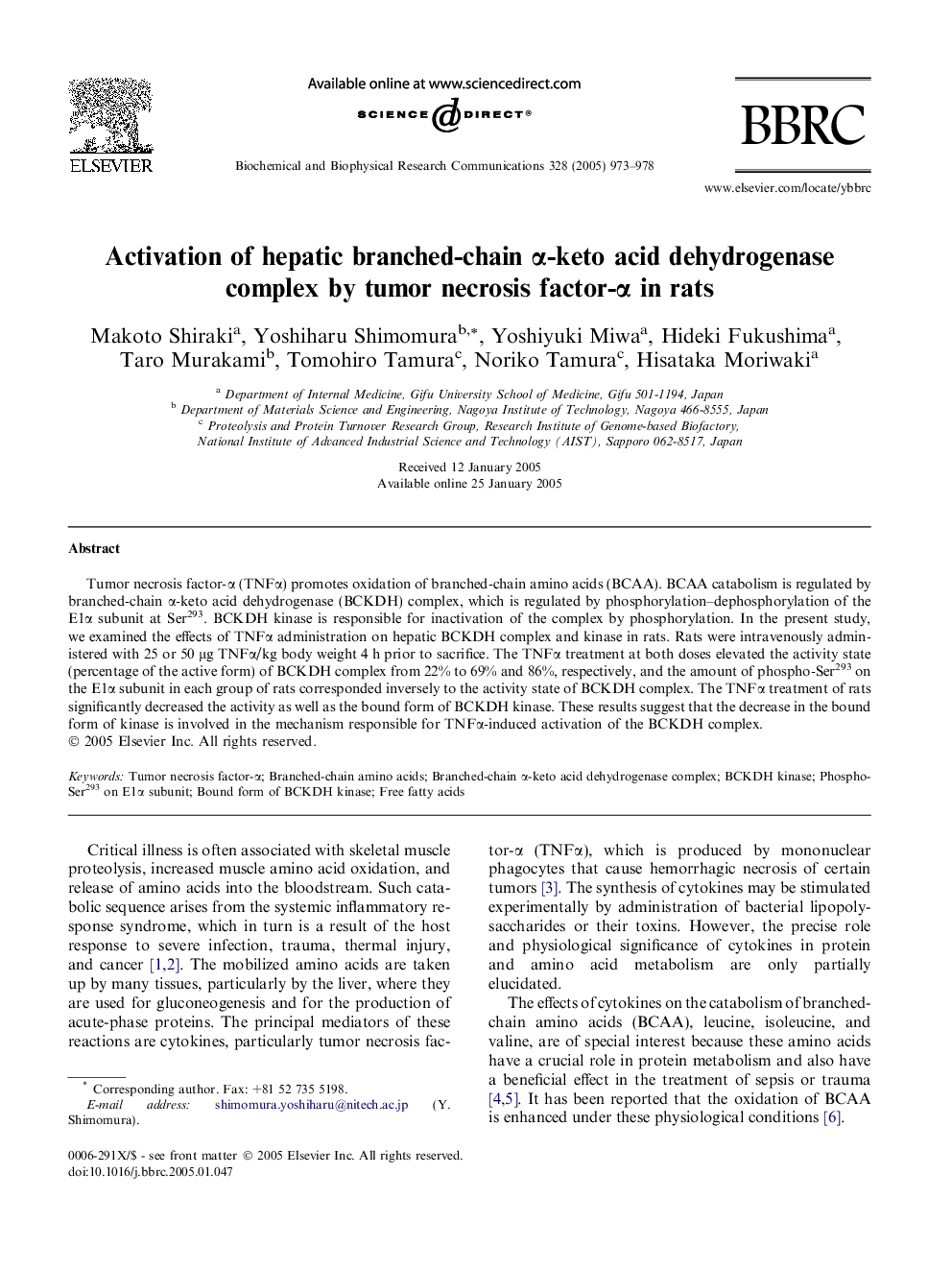| Article ID | Journal | Published Year | Pages | File Type |
|---|---|---|---|---|
| 10770597 | Biochemical and Biophysical Research Communications | 2005 | 6 Pages |
Abstract
Tumor necrosis factor-α (TNFα) promotes oxidation of branched-chain amino acids (BCAA). BCAA catabolism is regulated by branched-chain α-keto acid dehydrogenase (BCKDH) complex, which is regulated by phosphorylation-dephosphorylation of the E1α subunit at Ser293. BCKDH kinase is responsible for inactivation of the complex by phosphorylation. In the present study, we examined the effects of TNFα administration on hepatic BCKDH complex and kinase in rats. Rats were intravenously administered with 25 or 50 μg TNFα/kg body weight 4 h prior to sacrifice. The TNFα treatment at both doses elevated the activity state (percentage of the active form) of BCKDH complex from 22% to 69% and 86%, respectively, and the amount of phospho-Ser293 on the E1α subunit in each group of rats corresponded inversely to the activity state of BCKDH complex. The TNFα treatment of rats significantly decreased the activity as well as the bound form of BCKDH kinase. These results suggest that the decrease in the bound form of kinase is involved in the mechanism responsible for TNFα-induced activation of the BCKDH complex.
Keywords
Related Topics
Life Sciences
Biochemistry, Genetics and Molecular Biology
Biochemistry
Authors
Makoto Shiraki, Yoshiharu Shimomura, Yoshiyuki Miwa, Hideki Fukushima, Taro Murakami, Tomohiro Tamura, Noriko Tamura, Hisataka Moriwaki,
